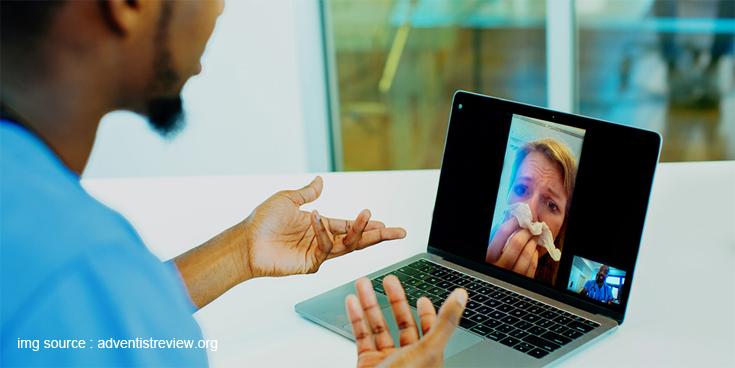Online doctor is now a common terminology that emerged during the mid-2000s, describing a new breed of healthcare practitioners and medical professionals who provide healthcare, including medication and drug prescription, online. Today, an increasing number of doctors (together with pharmacists) online practice medicine. Some do it as a sideline, while others are pursuing a full-fledged career in this field. Some practices also allow patients to interact live with their doctors via video, and some simply require patients to fill out online forms and submit them for a medication prescription or consultation.
Online doctor visits have grown significantly in recent years. Some experts believe that this rise is due to increased access to high-quality video-conferencing technology. While many physicians enjoy the convenience of video consultations, some drawbacks can come with these services. One of the biggest problems with this type of consulting is that it is difficult to schedule appointments. If you do not have enough free time on your hands, it is nearly impossible to visit several physicians for a video consultation.
In contrast, most physician offices still schedule appointments for one on one consultations, which involve the use of video equipment, or real-time consultations, wherein you can respond immediately to an inquiry or problem that you may experience. Although the majority of physician offices still schedule at least one on one consultations per month, many offices do not even provide this service. For this reason, the vast majority of doctors who provide consultation services, and most of those who work with other healthcare professionals, prefer to offer round-the-clock consultations instead of video consultations. Although round-the-clock consultation attendance does require more time away from home, it has significantly less impact on patient callbacks and the amount of time required to resolve the issue. This means that these professionals can spend more time addressing real-time issues, helping patients in real-life situations rather than responding to generic inquiries.
Although most physician offices now offer round-the-clock or email consultations, they still prefer to offer video consultations. The main reason for this preference is that video consultations are more effective at resolving the issues that patients bring to the office. According to research, patients who watched a video of their doctor interact had a much more positive experience than those who saw a written description of their problem. Furthermore, researchers found that the difference in treatment results was not significant; the same effects could be achieved by having either round-the-clock or email consultations, but only the first showed an improvement in treatment outcomes.
Some doctors, such as Gynecologist Manhattan, believe that email and round-the-clock video consultations should be removed from the physician directory because the majority of patients prefer them overwritten descriptions. Although some physicians will still offer video consultations over email, it will likely become less popular over time. Besides, most offices rarely schedule both email and video consultations due to the enormous amount of paperwork required for both formats. Physicians also believe that most patients will learn more information by seeing a video rather than a written description. Patients that would rather listen to a lecture or read a book may not want to watch a video consultation if there was nothing else for them to do while they were waiting for their consultation.
Overall, physician offices may need to adapt to changing consumer preferences for online doctor visits and round-the-clock or email consultations. Currently, there is no concrete solution to this problem. However, many offices have reduced the number of procedures or services that require the use of a computer by replacing these services with phone consultations or free online consultation programs. In the long run, doctors will need to find a way to adjust their practices to meet the needs of their customers.










